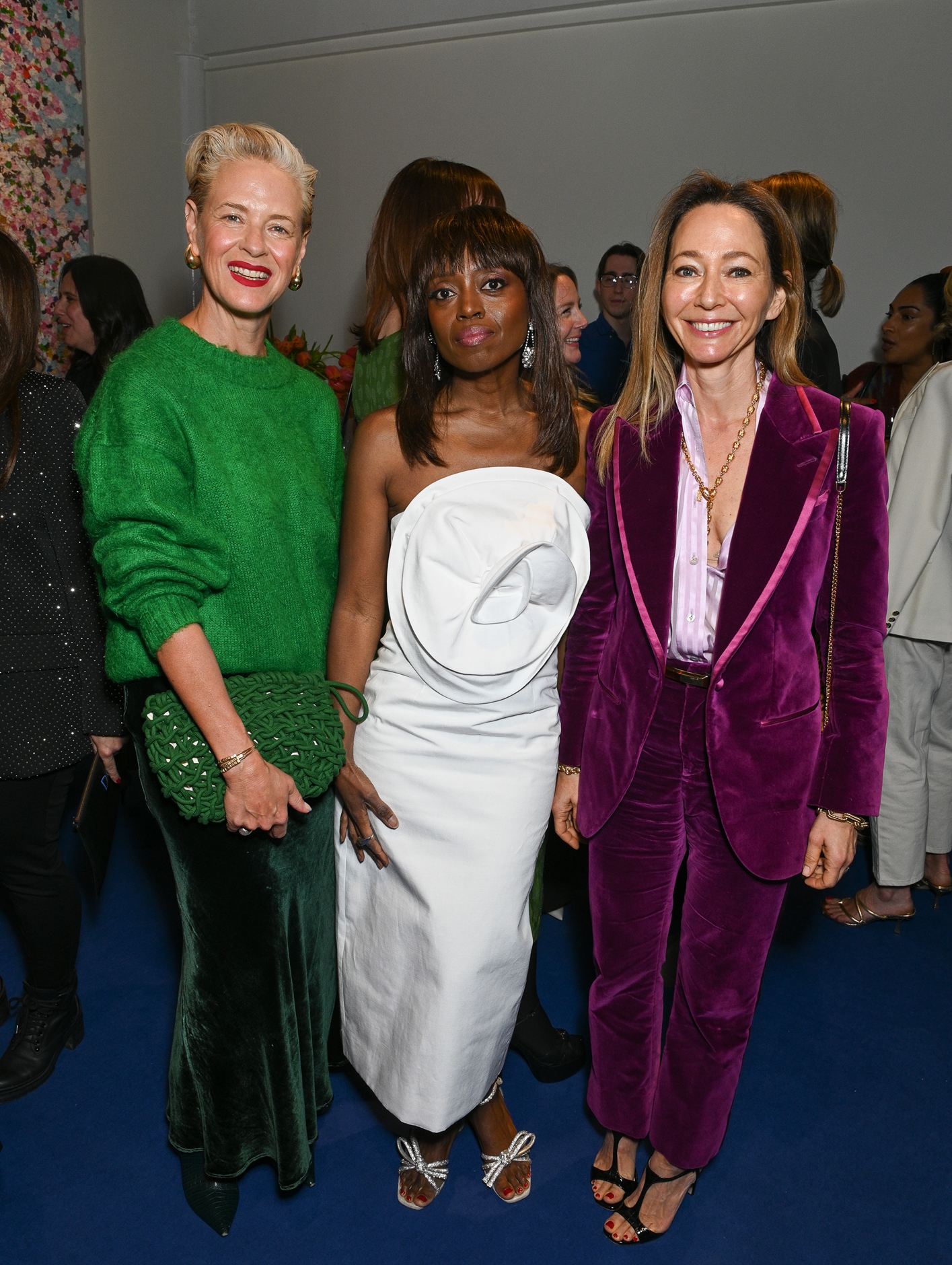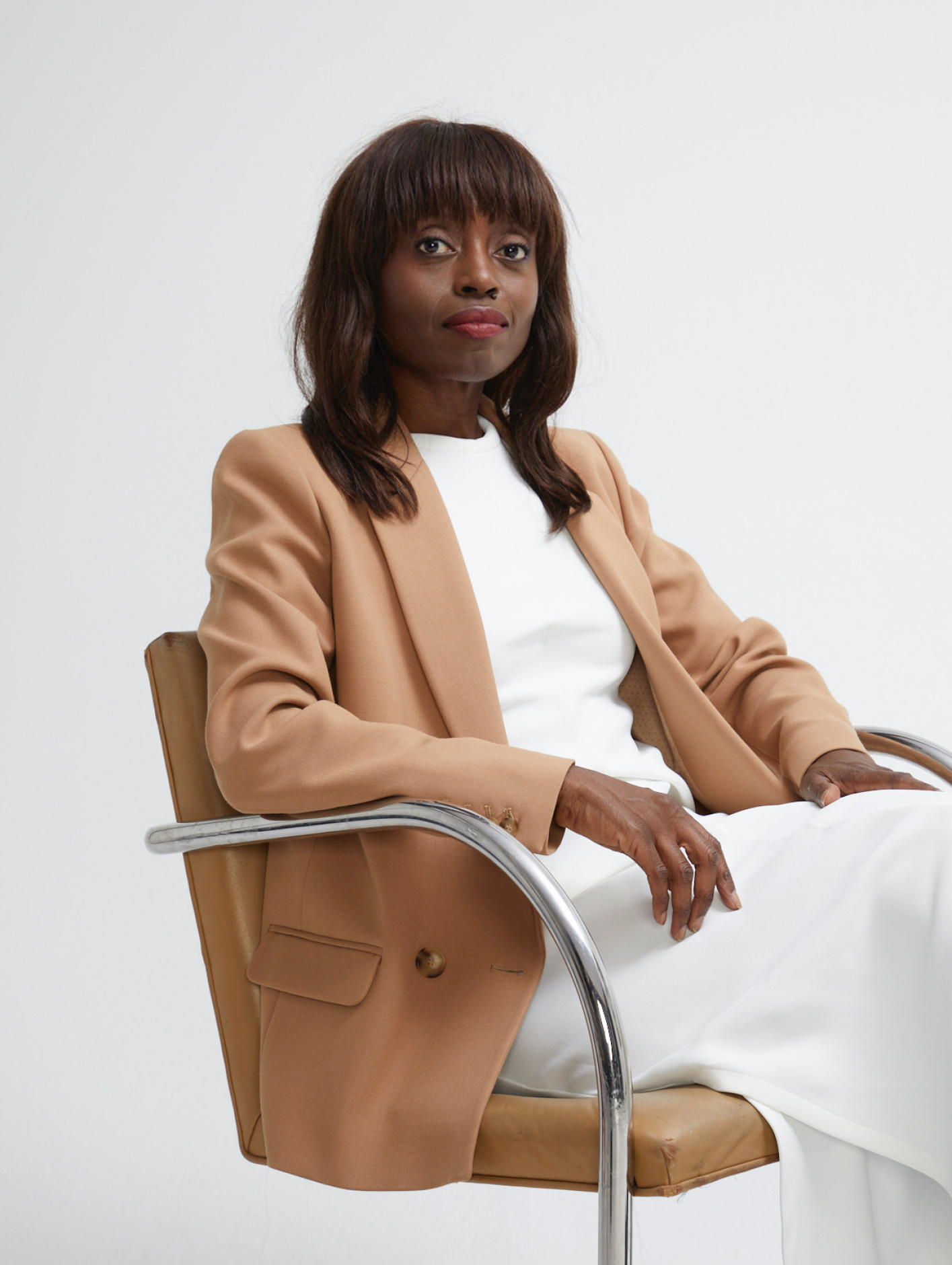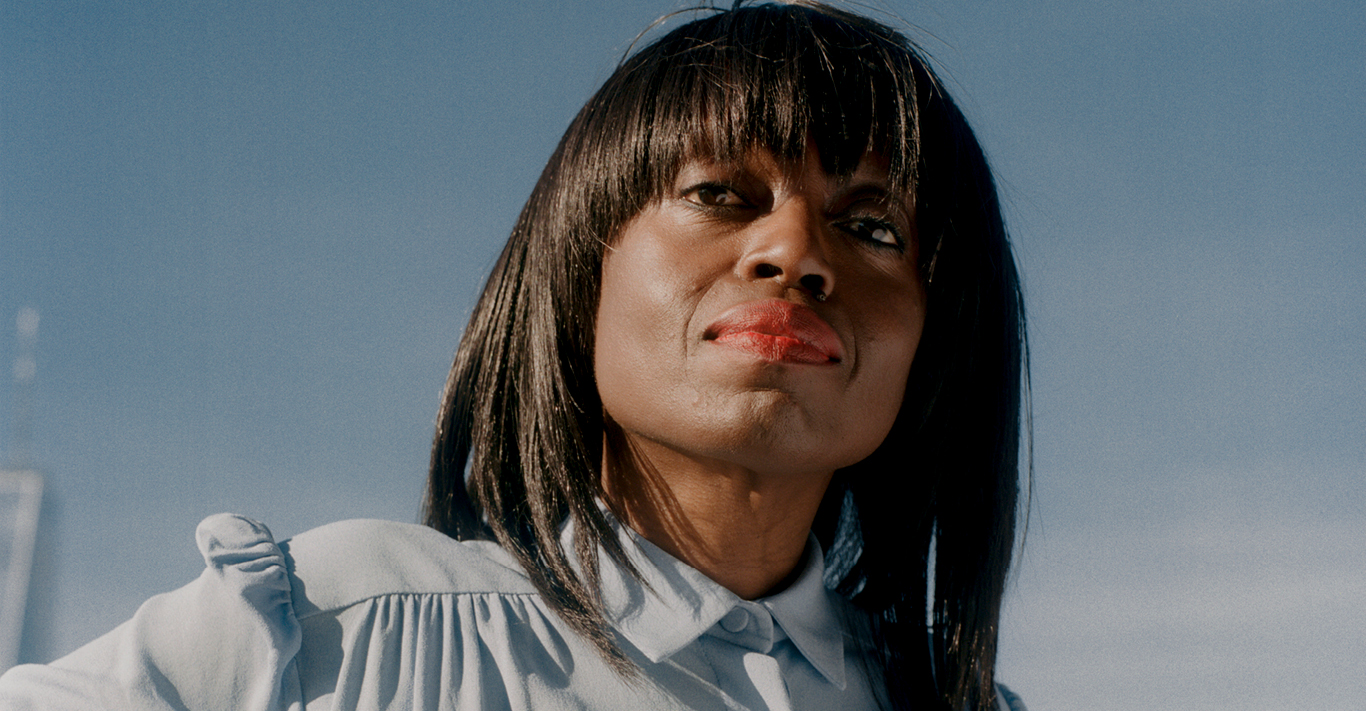WORDS
Imogen Almond
Can you tell us about your background and how this has helped you get to where you are today?
My parents are from Ghana and moved to the UK as first-generation immigrants. In Ghana, education is really important so this informed my ambition and resulted in me being a bit of a nerd with a passion for maths, which I ended up studying at university.
After university, I always imagined I would end up in banking but, with a spontaneous change of heart I ended up taking a real left turn and began working in the fashion and film industry. I worked for an independent film company here in the UK before being offered a role in America working for Focus Features, which is part of Universal. So, I packed up my things and moved to America.
During this time, I was based in LA and working in marketing. In my last role I was running international marketing for a division for Paramount Pictures and so my focus was on the global release of our movies and selling the strategy and campaigns. I went to a lot of film festivals and met some amazing people. It’s sad really that I had my most glamorous life pre-Instagram!
In the process of working, climbing the ladder and navigating corporate culture, I got an understanding of what women have to deal with on a daily basis and what it takes for us to succeed. This, along with my isolating teenage experience living in London and my innate ambition, are really why I am where I am today.
You founded women’s networking community The Suite in 2020. Can you tell us about what inspired you to kickstart this and what you hope to achieve with it?
The Suite was really inspired by a number of different things that I saw happening around me in the workplace.
During my time in the film industry, I was in a meeting with one of the heads of the studio and I remember thinking that she was extremely impressive. She was funny and smart and a little bit scary. As women, there is such nuance to how we succeed. I watched her be all those things at once and I thought, wouldn’t it be great if I could have access to her and insight into what she’s doing.
Another thing I notice is that the dynamics between women are often very different to the dynamics between men. I’ve noticed that, in general, men are very comfortable being transactional with one another and using their network of contacts to their advantage, whereas women tend to take a little longer to reach that point. I wanted to start seeing more women use their strengths, insights and expertise in support of one another more. With society and business the way it is, women can’t afford the luxury of taking their time to use their network to their advantage. In a nutshell, I wanted to see women be more comfortable in being transactional with each other.
These two main reasons led me to begin hosting dinners with women before 2020 and, due to their popularity, I officially launched The Suite in 2020 to give women the opportunity to network effectively.
You launched The Suite during the Covid pandemic, how did you navigate the lockdown and did it have an impact on business?
When Covid hit, I was convinced the company was over. It was a scary time, but I think when times are hard that is when you show your determination and strength. All of the businesses and founders who made it through the pandemic were the ones who were nimble and resilient and could turn lemons into lemonade.
For The Suite, like many others, we pivoted to digital. Before the pandemic, we only hosted in-person dinners where all the members could get together. But as everything was now online, we had to get creative, which I believe has made the business what it is today. Everything we did to revamp made The Suite a more scalable business so, in a weird way, the pandemic was a blessing in disguise. We introduced masterclasses, small peer coaching groups and newsletters, all of which are still around today and were born from the lockdown.

Since the beginnings of The Suite, what changes or milestones have you achieved?
As previously mentioned, a lot of the changes to the company came out of the pandemic.
One major change actually occurred by accident. During the pandemic, we introduced an offering called ‘Suites’, which is essentially peer coaching. During the early days of Zoom, we attempted to bring the whole community together for the ‘Suites’ but what ended up happening was a bunch of tiny dots on a screen all talking over each other. One day, completely by accident, one of those ‘Suites’ only had eight people show up and it ended up being one of our best gatherings yet. That group of eight ended up really connecting and really digging into how they were navigating the pandemic, so we quickly realised that Zoom works better with fewer people and it was something we wanted to replicate throughout the whole community. Because of this, I sat down and put everyone in the community into small groups and devised a framework that they could use to peer support one another. These groups still meet together once a month and it is still thriving to this day.
A success story that has come from these small peer group sessions is one of our members now runs a successful Fintech company. She was a very senior executive at a major banking firm but her secret dream had always been to start her own Fintech business. During the pandemic, with her peer group, she brainstormed the idea and her group helped her with her deck and her pitch. Since then she’s started up the company and raised more than $10,000,000 in funding and her business is such a huge success. The key to success is having people you can ask anything of at any time and they will support you.
We have also introduced weekly masterclasses. Every Thursday, we bring in a speaker and we explore topics around leadership, success, AI, marketing, the economic climate… everything really. Those weekly masterclasses are brilliant because they really bring the community together as they can ask questions and connect to one another.
Back in 2010, you co-founded The Wie Network in response to the lack of diversity at traditional business forums. Have you noticed a positive change around the topic of diversity in the workplace since 2010 or is there still a lot of work to be done?
The response to diversity goes in cycles and we are currently in a down cycle. Post-pandemic was a really amazing time that, unfortunately, came on the heels of George Floyd but we saw an incredible shift towards supporting people of colour. There was a huge amount of activity, helped by social media, but now we are seeing backlash against the improvement we made during that time. It’s upsetting to see. In America, we are seeing an obvious pushback against affirmative action or anything that gives any one group a leg-up, even though they are coming from a position of lack of access. If I’m honest, it’s been a bit of a rollercoaster.
Can you tell us about the UK launch of The Suite and what you hope to achieve from it?
I’m from the UK and I moved to America for my career. The move was instrumental to me dreaming bigger and wanting to start a business. I felt this freedom to give voice to my big ideas and ambitions in a way I felt constrained to do back home in the UK. But the dream was always to come back.
I wanted to bring this revelation to the women of the UK and provide an environment where women could be openly ambitious and instrumental in supporting and encouraging that for one another. What I have created isn’t a new concept. Men have been doing it for years and have no issue in using their relationships as leverage for their own success. I want to see more women across the world feel comfortable doing the same as I believe that society will change for the better if we have more women in leadership positions. The only way we do this is by creating powerful networks of women across the globe, who are using their influence to speed things up for each other.

Have you noticed any cultural differences between the UK and America when it comes to women in a professional capacity? If so, how do you think this will impact the UK business?
In America, there is this openness and willingness to talk about personal feelings publicly. I have found they are a lot more confident and outspoken than those in the UK. I’ve also noticed a big difference in the way women speak about their success. American women are very comfortable talking about what they want to achieve. In the UK, they talk about their wants and desires in a much more reserved way. I have also noticed that British women tend to care about the ‘whole’ more than those in America. Brits want to have a well-balanced life and don’t want to compromise their life for work. I want to stress how important that is, too.
Because of these differences I have noticed between the women in the UK and America, I am currently exploring the ways we will approach the UK market through The Suite. The way we have been successful in the US is by listening and building things that work for the women I’m serving. Times change and needs change so it’s all of that feedback that allows us to create programs that make sense.
In the UK, I am keen to bring in more lifestyle elements into The Suite. I hope to host talks with interesting people with many different interests and careers. In the US, we tend to only focus on the career but here, we will focus a little more on how a working mother can navigate the whole thing as we want to support that.
As a successful leader and a mother, how do you find a healthy work-life balance?
No one has mastered the perfect work-life balance and anyone who says that they have definitely outsources a lot of help. However, I can say I have been able to find a balance that works for me and there are three ways I am able to do this.
One is by embracing the mess. Kids don’t conform to your timetable – they encroach on things. The second thing is to not judge yourself. It’s important to remind yourself that you are doing your best and your best is great. The third thing is compartmentalising. This comes naturally for me as a Virgo. Compartmentalising is a lot easier when you know how you work best. For example, I know that I shouldn’t schedule meetings in the mornings because I am the most creative during this time. This way, you can carve out time for the non-negotiables and work around that.
What advice would you give specifically to women looking to climb the business ladder?
You have got to have a network. I honestly don’t know how anyone can succeed without one. It is also so important that people are aware of the good work you do. Don’t think that just because you’re in the office typing away with your head down that everyone sees that. You need to make sure there is awareness around all of your successes and milestones rather than thinking by osmosis they’ll notice. I learnt these two things the hard way and I now ensure I practise this every day.
As a woman, have you ever faced any challenges throughout your career and, if so, how have you dealt with them?
Earlier on in my career, I was often the only black woman in many rooms and I definitely found that hard as I would experience imposter syndrome. Then, as a founder trying to raise money, it was one of the hardest things I have ever had to do. You’re walking into rooms with mostly men who mostly make you feel inadequate and you have to somehow transcend that and rise above it despite the endless rejections.
Experiencing this, I have figured out it is all about your mindset. Positive self-talk is instrumental in career success. Walking into the room believing you are just as smart and just as competent as everyone else makes a real difference. Often, it’s true anyway! You just have to believe it yourself.




